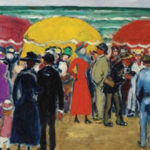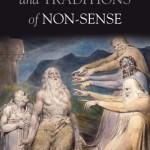We run our website the way we wished the whole internet worked: we provide high quality original content with no ads. We are funded solely by your direct support. Please consider supporting this project.
What is the significance of 2 Samuel 24:17–25?
“So the Lord answered [David’s] supplication for the land, and the plague was averted from Israel.”
The passage suggests that the Lord intended the plague to judge Israel further but David’s supplication persuaded him to change his mind and relent from his punishment. If the future is to some degree open and God is genuinely affected in the present by what we do and by how we pray, the urgency the Bible attaches to prayer begins to make sense. If everything is eternally settled, this urgency is compromised.
Category: Q&A
Tags: Open Theism, Q&A
Topics: Open Theism
Verse: 2 Samuel 24
Related Reading

How do you respond to Ephesians 1:4-5?
Question: Ephesians 1 refers to believers as predestined before the foundation of the world. How do you reconcile this with your view that free actions of people (like choosing to believe in Christ) can’t be predestined or even foreknown ahead of time? Answer: It took three hundred years before anyone in Church history interpreted the…

What happens to babies who die?
The Bible does not directly address the issue of what happens to babies who die before being able to make a decision for or against Christ. People have thus had to arrive at conclusions about this matter on the basis of other beliefs they hold to be true. The majority of evangelicals today assume that…

God of Sense and Traditions of Non-Sense
As the title suggests, in his book, God’s Problem: How The Bible Fails to Answer Our Most Important Question – Why We Suffer, Bart Ehrman argues that the Bible has nothing compelling to say about the problem of evil. Well, I just put down a beautifully written four-hundred and fifty page book that compellingly argues…

Is it true you’re an “Open Theist” and that you don’t think God knows the future perfectly?
I am an “Open Theist” – though I honestly don’t care for the label, because as I’ll show, the uniqueness of this view isn’t in what it says about God but in what it says about the nature of reality. (I think it would be better to call us something like “Open Futurists.”) In any…

How do you respond to Matthew 20:17–19?
“The Son of Man will be handed over to the chief priests and scribes, and they will condemn him to death; then they will hand him over to the Gentiles to be mocked and flogged and crucified, and on the third day he will be raised.” God knew perfectly the hearts of all the Jewish…

How do you respond to Job 1:21?
“…the Lord gave, and the Lord has taken away; blessed be the name of the Lord.” This passage is often quoted as the proper attitude pious people should assume in the face of tragedy, with the implication that all tragedy is the Lord’s doing. This teaching lands hard on the ears of parents who have…
